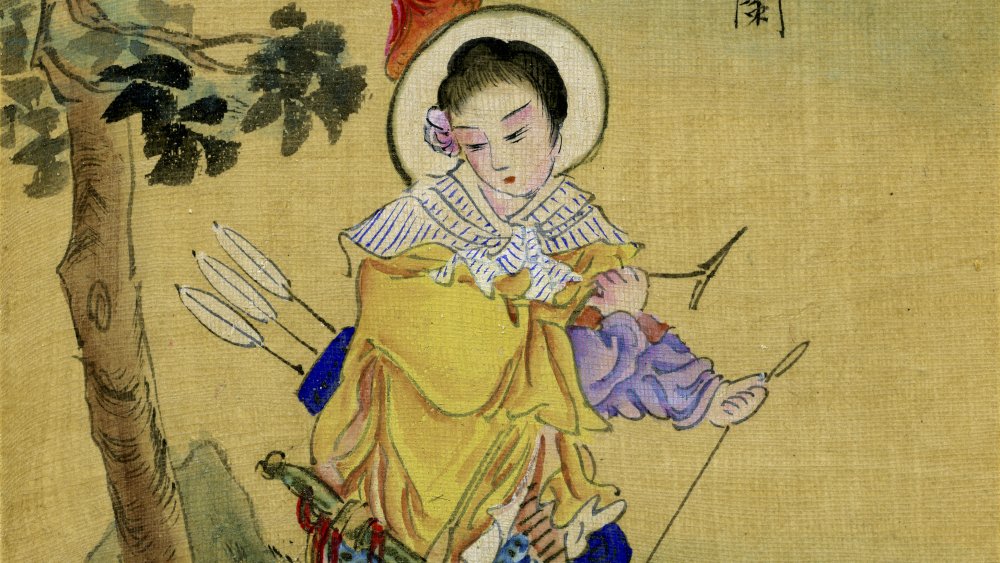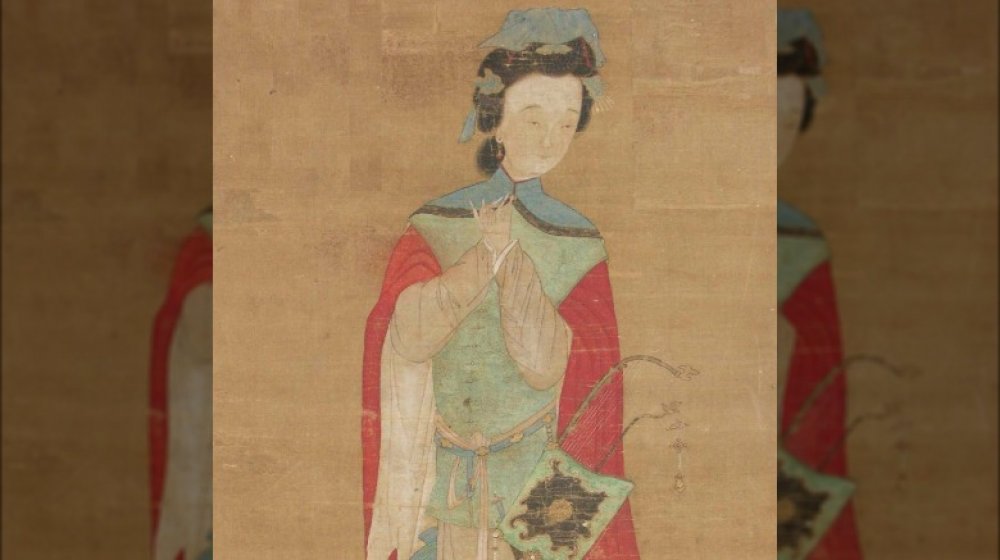Mulan Might Actually Have Existed. Here's Why
The older folks can be prone to entertaining the whippersnappers with a yarn or two from days gone by, before the world was in color (haven't you seen The Wizard of Oz?) and giants walked the land. And the narrative concludes, and someone asks, "Is that story true?" and the tale-teller might reply, "All of my stories are true." And the kid might press: "But did it really happen?" And might hear, "All of my stories are true. And some of them really happened." Or at least should have happened. Whether it's the Amazons, or Robin Hood, or King Arthur himself, there's "true" and there's "really happened." For instance: "The Ballad of Mùlán."
Lots of us have at least a passing knowledge of the legend of Huā Mùlán via Disney's 1998 animated retelling. Her father is conscripted to join the emperor's army, but is too old and ill to serve. Mulan disguises herself as a male and takes his place. Ancient Origins says that the tale dates back to around the Fourth Century CE, first written down about 200 years later in the form of a folksong, "The Ballad of Mùlán." Even that original text is missing; the oldest copy only dates back to the Twelfth Century CE. Like any good folk tale, there are variations on the themes — one version has her already skilled in various combat techniques; when she returns home, her fellow soldiers are amazed that she's actually a she.
Mulan has been a symbol of selflessness for centuries
The lead character provides important lessons for the listener. Even the character's name is significant: Huā Mùlán translates as "magnolia flower," one of the old symbols of China itself. Like any good hero saga, Mùlán's action takes place within an identifiable historic setting, per History Extra — think of Robin Hood of legend being part of King Richard I of English history.
Mùlán has served as inspiration in China for centuries, an example of self-sacrifice for the greater common good; of devotion to family; of bravery. Besides the source folksong, All That's Interesting tells us that her story has been adapted into novels, plays, ballets, and at least one opera before the Disney version and its direct-to-video sequel six years later. (For the purists, History Collection offers a folktale-vs-cartoon comparison.) Proof positive that the story continues to speak to audiences everywhere, Disney has produced a live-action adaptation of their animated feature. Variety reports that the release of Disney's new live-action Mulan has been postponed for the third time. It was originally slated for March, but now (pending a change, of course) will be in theaters August 24, 2020.
Was Mùlán real? Did it really happen? The important question is, "Is it true?" And the answer is an undeniable "yes."

